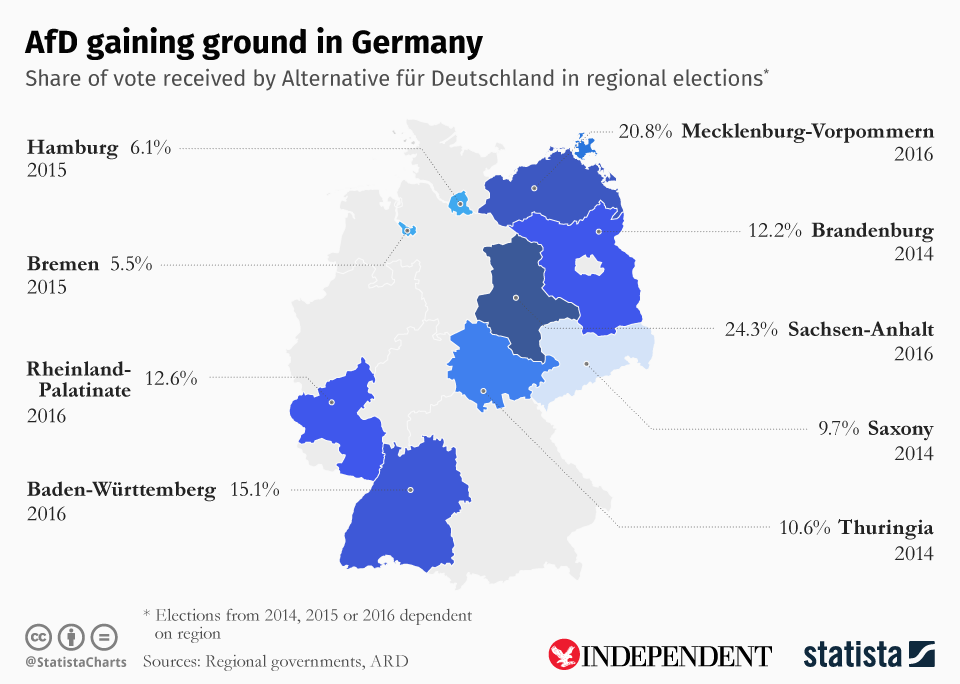How anti-migrant AfD party is gaining ground in Germany, in one map

Germany's anti-migrant party, Alternative für Deutschland (AfD), has won almost a quarter of the vote in parts of the country.
A map, created by Statista for The Independent, has revealed how the right-wing populist movement is gaining ground in Germany, with more than 10 per cent of the vote in six regions.
AfD beat Angela Merkel's ruling CDU party into third place in the Chancellor's constituency following elections in the northern state of Mecklenburg-Western Pomerania.
The right-wing populist party, formed in 2013 with the initial objective of opposing Germany’s European Union membership, won 20.8 per cent of the vote in the state election, while Ms Merkel's Christian Democrats polled 19 per cent, their worst result yet in the state.
The AfD has also won 24.3 per cent of the vote in Sachsen-Anhalt and 20.8 per cent in the northern state of Mecklenburg-Vorpommern. It has gained 15.1 per cent and 12.6 per cent of the vote in Baden-Wurttemberg and Rheinland-Palatinate respectively.
The party has less support in the smaller northern cities, winning 6.6 per cent of the vote in Hamburg and 5.5 per cent in Bremen.
Ms Merkel's approval rating has fallen to a five-year low of 45 percent, down from 67 percent a year ago, when the Germany Government accepted thousands of refugees stranded at Budapest train station.
The centre-left Social Democrats, who led the outgoing state government in a coalition with the conservatives, remained the strongest party with 30.6 per cent of the vote.
The AfD is now represented in nine of Germany's 16 state legislatures and hopes to enter the national Parliament next year, but there's no realistic prospect at present of the party going into government because other parties will not tolerate it.
Join our commenting forum
Join thought-provoking conversations, follow other Independent readers and see their replies
Comments
Bookmark popover
Removed from bookmarks